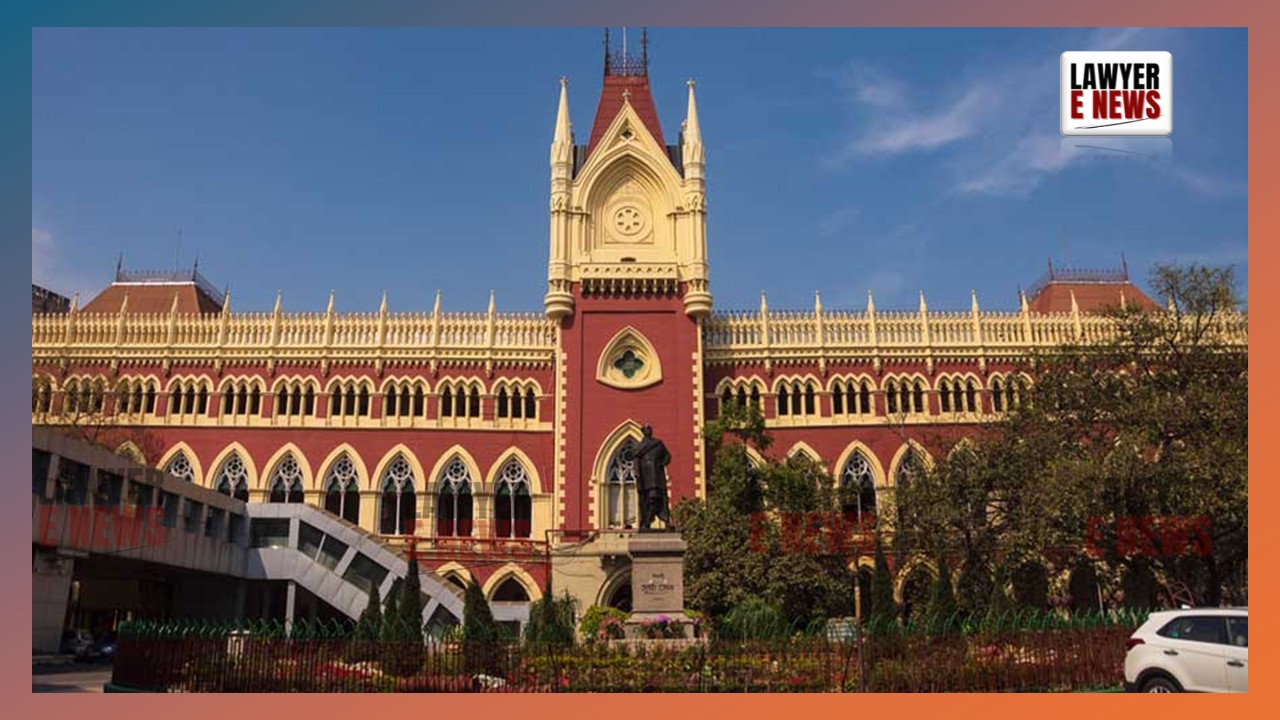-
by Admin
15 February 2026 5:01 PM



Defendants Must Pay Plaintiffs Their Rightful Share or Face Asset Attachment and Sale - In a significant ruling Calcutta High Court modified a trial court’s decree, directing it to quantify and ensure payment of the plaintiffs’ rightful share from the estate of Late Sushil Kumar Sett. The Court found that while revocation of a succession certificate is not legally permissible under the Indian Succession Act, 1925, the question of ownership and title must be determined separately by a civil court.
“The plaintiffs have an undisputed 5/6th share in the estate, and the appellate court’s remand order left no room for reconsideration of this fact. The trial court was bound to determine the exact amount realized by the defendants through the extended succession certificate and ensure its payment to the plaintiffs. Its failure to do so is legally untenable,” the Bench comprising Justice Sabyasachi Bhattacharyya and Justice Uday Kumar ruled.
The case arose from a dispute between Smt. Dipali Rani Sett and another (appellants/defendants) and Uma Rani Sett and others (respondents/plaintiffs) regarding the division of shares and financial benefits from the estate of Sushil Kumar Sett. The plaintiffs alleged that the defendants had wrongfully obtained an extended succession certificate without notifying them and had consequently usurped their rightful financial entitlements.
“A Succession Certificate Is Not a Title Deed—Ownership Rights Must Be Determined Separately”
The High Court underscored that while revocation of a succession certificate is not explicitly provided under the Indian Succession Act, it does not confer ownership rights upon the holder.
“A succession certificate merely allows an individual to collect the assets of the deceased. It does not settle ownership disputes. If an extended certificate was obtained without notice to the rightful heirs, their remedy is to seek a declaration of title in a civil suit,” the Court clarified.
The plaintiffs had originally sought revocation of the extended succession certificate, but this was denied on technical grounds. They then filed a civil suit for declaration of title, which the trial court dismissed. Upon appeal, the High Court remanded the matter back to the trial court for a limited determination of:
1. Whether the disputed shares had been transferred to the defendants.
2. The exact amount realized by the defendants through the extended succession certificate.
The trial court, after remand, correctly upheld the plaintiffs’ entitlement to 5/6th of the estate but failed to quantify the financial benefits derived by the defendants, prompting the plaintiffs to seek redress before the High Court.
Defendants’ Failure to Prove Independent Purchase of Shares Leads to Adverse Inference
The High Court observed that the burden of proof lay upon the defendants to establish that the assets they held were not derived from the estate of Sushil Kumar Sett. Despite ample opportunities, they failed to produce any evidence.
“The defendants did not summon the concerned companies, did not provide any documentary proof of independent purchase, and did not show separate financial sources. In contrast, the plaintiffs furnished bank statements, dividend records, and tax documents tracing the assets back to Sushil Kumar Sett’s estate. An adverse inference must be drawn that these assets were indeed derived from the estate,” the Court held.
Citing Shivshankara v. H.P. Vedavyasa Char (2023) 13 SCC 1, the Court reiterated that a trial court cannot exceed the scope of a remand order, and its primary duty was to quantify the amounts realized by the defendants and ensure their equitable distribution among the heirs.
High Court Exercises Discretion Under Order XLI Rule 33 CPC to Ensure Complete Justice
A key aspect of the ruling was the High Court’s exercise of its discretionary powers under Order XLI Rule 33 of the Code of Civil Procedure, 1908, which allows appellate courts to grant complete relief even in the absence of a formal cross-appeal.
"The trial court failed to implement the appellate court’s remand order fully. The plaintiffs, despite not having filed a formal cross-appeal, cannot be deprived of their rightful dues. Order XLI Rule 33 enables this Court to ensure justice is served by directing the trial court to quantify the amount and ensure payment,” the Court ruled.
The Court ordered that the defendants must pay the plaintiffs their 5/6th share from the amounts they had realized through the extended succession certificate. Until payment is made, the Court charged this amount on the assets of Swarup Bikash Sett, the defendants' predecessor, and further directed the trial court to initiate attachment and sale of assets if necessary to satisfy the plaintiffs’ claims.
“Defendants Must Pay, or Their Assets Will Be Sold”
Summing up its ruling, the High Court modified the trial court’s decree, directing:
1. The trial court must quantify the amount realized by the defendants from the estate and ensure payment to the plaintiffs.
2. If the defendants fail to pay, the trial court must charge the amount on their assets.
3. If necessary, the trial court shall attach and sell assets to satisfy the plaintiffs' entitlement.
4. The trial court must complete this exercise within six months.
"The plaintiffs’ entitlement has already been established. The only remaining issue is quantification of their share, and the trial court is now duty-bound to ensure compliance. Justice delayed must not become justice denied," the Court concluded.
Date of Judgment: January 30, 2025
